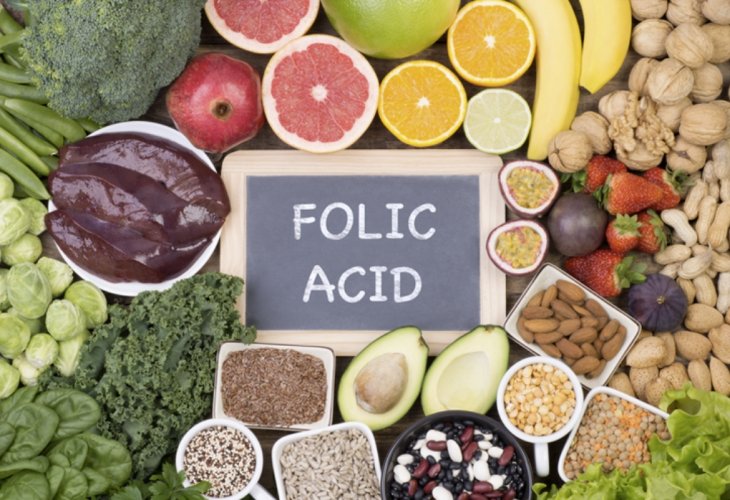Why B Vitamins are Essential for You and Your Baby
Discover when and why folic acid is crucial, and its relationship with B12.
 (Photo: shutterstock)
(Photo: shutterstock)B10 – Folic Acid
Folic acid plays a crucial role in the production of the nucleic acids D.N.A, R.N.A, as well as the synthesis of proteins and red blood cells.
Alongside vitamins B6 and B12, folic acid helps prevent elevated levels of homocysteine in the blood.
Folic acid is vital for preventing depression. A study among individuals with depression found that they often suffered from a folic acid deficiency. Additionally, its use is especially critical for pregnant women, as a deficiency in B10 can lead to neural tube defects in the fetus.
The vitamin is also essential for the proper functioning of the digestive system, increasing appetite, and aiding milk production for nursing mothers.
Folic acid is available as a supplement, typically between 400-800 mcg. Food sources include yeast, alfalfa sprouts, seeds, almonds, beets, leafy greens, and broccoli.
B12 – Cobalamin
Folic acid and B12 work together to produce healthy red blood cells. Vitamin B12 is involved in D.N.A synthesis, ensuring proper cell division. It is also crucial for a healthy nervous system.
In nature, the vitamin exists as cyanocobalamin and hydroxocobalamin.
Our body absorbs B12 in the digestive tract by secreting a carrier that binds to the vitamin and transports it from the intestine to the bloodstream. Without this carrier, the vitamin cannot be absorbed even if dietary intake is adequate. Therefore, individuals with B12 deficiency should take a sublingual supplement that is absorbed directly into the bloodstream.
Symptoms of B12 deficiency include shortness of breath, weakness, fatigue, depression, anemia, nerve inflammation, walking difficulties, facial bone inflammation, mouth sores, limb numbness.
Food sources include fermented vegetables, as certain fermentation bacteria produce B12, as well as lake algae and animal products.
The vitamin can be synthesized in the intestines if the microflora is healthy. The recommended blood level of B12 is between 400 and 900.
To book an event with Rabbanit Rachel Bazri, call 073-2221240 or 052-9551588

